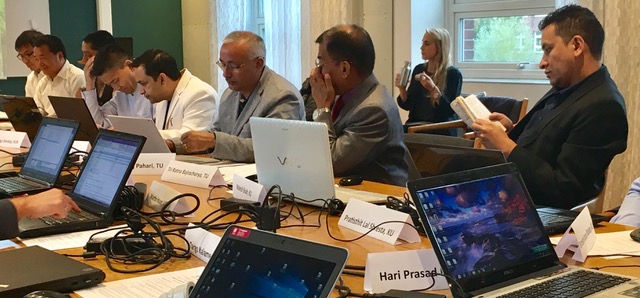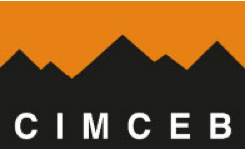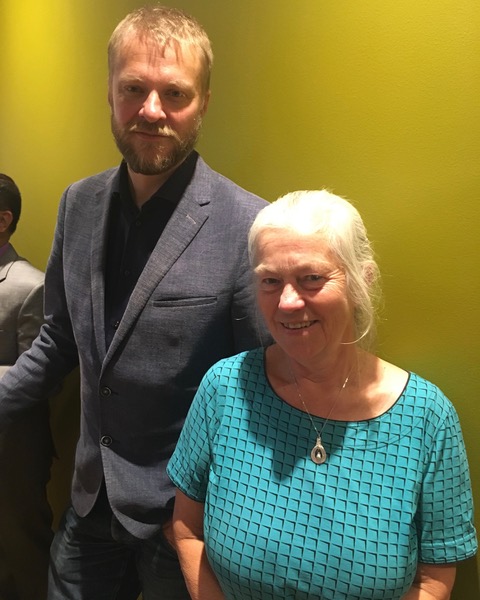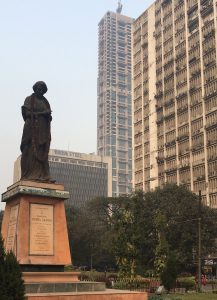
 Four years back, in 2015, Lund University was awarded a grant from the European Union Erasmus+ Programme, to fund a collaborative project entitled CIMCEB, an acronym for ”Curricula Development of Interdisciplinary Master Courses in Energy Efficient Building Design in Nepal and Bhutan”. The project, completed in June 2019 was run by a consortium with six partner universities – three in Europe (one in Estonia and one in Austria, besides Lund University), two in Nepal (Tribhuvan University and Kathmandu University) and finally the Royal University of Bhutan (RUB) or more precisely its College for Science and Technology in Phuntshoeling. Full information on the consortium web page.
Four years back, in 2015, Lund University was awarded a grant from the European Union Erasmus+ Programme, to fund a collaborative project entitled CIMCEB, an acronym for ”Curricula Development of Interdisciplinary Master Courses in Energy Efficient Building Design in Nepal and Bhutan”. The project, completed in June 2019 was run by a consortium with six partner universities – three in Europe (one in Estonia and one in Austria, besides Lund University), two in Nepal (Tribhuvan University and Kathmandu University) and finally the Royal University of Bhutan (RUB) or more precisely its College for Science and Technology in Phuntshoeling. Full information on the consortium web page.
Capacity building

The project primarily aimed at capacity building. In October 2017 the sixth consortium meeting was held in Lund. The NSAN editor Lars Eklund participated in the first session of the meeting and mingled with the Nepalese and Bhutanese representatives, and informed about his recent visit to the RUB College of Education in Samtse (read his report), as well as previous visits to RUB as well as Tribhuvan University in Kathmandu.
Through the CIMCEB project, the partner universities from Nepal and Bhutan has developed a new Master programme in the area of energy efficiency in buildings as well as supported existing Master programmes with development of laboratory facilities and establishment of new courses in order to encourage the possibilities to decrease the energy use in buildings and minimize the environmental impact.
Training courses
 The master programme is supposed to include the development of appropriate laboratory components and field experiment tools based on interactive learning and teaching. The graduated masters on civil engineering will be prepared to meet the market needs and the building/energy efficiency codes of the Partner countries in order to establish sustainable energy development and efficient energy practices.
The master programme is supposed to include the development of appropriate laboratory components and field experiment tools based on interactive learning and teaching. The graduated masters on civil engineering will be prepared to meet the market needs and the building/energy efficiency codes of the Partner countries in order to establish sustainable energy development and efficient energy practices.
The CIMCEB project will also establish training courses for professional civil engineers and architects in the areas of applied energy for buildings as well as promote technological and scientific co-operation between universities and appropriate construction (and other) companies.
The impressive project is coordinated by the two Lund University researchers Henrik Davidsson, Associate senior lecturer at Department of Architecture and the Built Environment; and Elisabeth Kjellsson, Senior lecturer at Division of Building Physics. Photo above to the left.
 As part of the ongoing CIMCEB project, a Lund University masters student, Marianne Löwgren (photo to the right), spent time in Kathmandu during November-December 2017, working on a thesis project entitled ”Indoor Air Pollution, Passive Ventilation Strategies and Thermal Comfort in Nepal”. Marianne was also present at the consortium meeting in Lund to present her project plans.
As part of the ongoing CIMCEB project, a Lund University masters student, Marianne Löwgren (photo to the right), spent time in Kathmandu during November-December 2017, working on a thesis project entitled ”Indoor Air Pollution, Passive Ventilation Strategies and Thermal Comfort in Nepal”. Marianne was also present at the consortium meeting in Lund to present her project plans.
Long tradition of South Asia collaboration
The Department of Architecture and Built Environment in Lund has a long tradition of collaboration with South Asia. More information.
In the early 2000s, Prof. Subrata Chattopadhyay from Indian Institute of Technology at Kharagpur, India, was assigned to the department as guest lecturer, and for many years courses under Sida’s International Training Programmes were organised. Over 800 planners, architects, civil engineers and other professionals – many from India, Nepal and Bhutan – attended courses in courses such as International Construction Management (1990–2000), Architecture & Development/ Housing & Development (1990–2002), Architecture, Energy & Environment (1995–2003), Conservation & Management of Historic Buildings (2004–2005), Organized Self-help Housing (2002–2006), and Urban Housing Management. For many years, a postgraduate International training course on Conservation and Management of Historic Buildings was also organised, as a collaboration project betweeen the Department of Housing Development and Management and the Dept. of Architectural Conservation and Restoration, Lund University. The courses were initiated and financed by the Swedish International Development Cooperation Agency, Sida.
Lars Eklund
PS. The Bhutan/Nepal is completed. Now Elisabeth Kjellsson and her colleagues at Lund University plan for a new collaboration project with Asian partners, this time with three universities in Mongolia. Good luck.
